10 Adolescent Depression Books for Parents
When I first became a parent, I thought that nothing could be more difficult than the infant years. The sheer terror of not knowing what I was doing, the exhaustion that I knew what was coming but had no way to truly anticipate it…it was survival mode. I thought no part of this endeavor could ever be harder. I miss that foolishly optimistic young mother. My children are only 9 and 10, but though my 9-year-old skews a little younger, my 10-year-old is hurtling towards teendom at the speed of light. Every new stage is a bewildering fresh slate. Every child hits each stage in an infuriatingly different way. I’ve been a mother for a decade, and the only constant I’ve found is change.
Mix this uncertainty with the thread of (diagnosed and undiagnosed) mental illness running through my family tree, and you have a recipe for disaster. The preteen and teen years are hard enough to decode without factoring in anxiety, depression, and other mental health issues that are finally being discussed as the legitimate medical problems they are. Below, I’ve gathered a list of adolescent depression books for parents. Our children need us to be advocates and allies, and while there isn’t one guidebook for parenting, there are titles to act as little lights, pushing us towards something that might help.
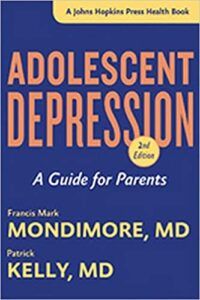
Adolescent Depression: A Guide for Parents by Francis Mark Mondimore and Patrick Kelly
This book is an essential primer, covering terminology, diagnosis, and various treatment methods. It’s especially helpful for caregivers who have never navigated the mental health system, but the simplicity can be very grounding for anyone struggling to understand the depressed teen they love.
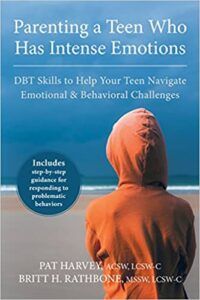
Parenting a Teen Who Has Intense Emotions: DBT Skills to Help Your Teen Navigate Emotional and Behavioral Challenges by Pat Harvey and Britt H. Rathbone
DBT stands for dialectical behavioral therapy, which is a type of therapy that uses mindfulness, distress tolerance, and other techniques to help soothe intense emotions. This article helped me understand the approach. The reviews for this book glow, speaking to practicality and actionable steps.
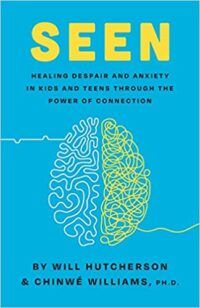
Seen: Despair and Anxiety in Kids and Teenagers and the Power of Connection by Will Hutcherson, Chinwé Williams
While this book is written with a connection to Christianity, all adults will be able to find actionable steps to support young people in their lives. A mixture of anecdotal data and scientific evidence is presented in an approachable way that makes this a quick read. This book particularly looks into the use of personal connection to support mental health.
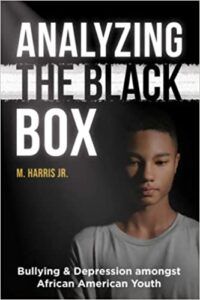
Analyzing the Black Box: Bullying & Depression amongst African American Youth by M. Harris Jr.
Not all teen depression looks the same. Harris Jr. presents a look at depression as a result of racist bullying in Black youth, highlighting the prevalence of racism as a source of poor mental health, but also offering solutions to build resilience. An ecourse on physical self defense is included.
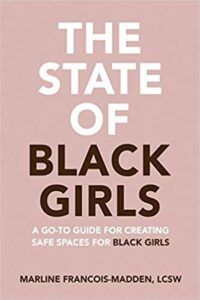
The State of Black Girls: A Go-To Guide for Creating Safe Space for Black Girls by Marline Francois-Madden
A mix between nonfiction reading and guided journal prompts, this book has praised by school counselors, social workers, and Black women and girls. Francois-Madden gives Black girls language to understand the various specific issues they face, and the gift of knowing they are not alone in their experiences.
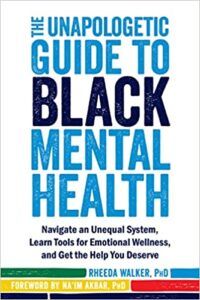
The Unapologetic Guide to Black Mental Health: Navigate an Unequal System, Learn Tools for Emotional Wellness, and Get the Help You Deserve by Rheeda Walker
While not specific to teens, this book is crucial for Black people who are often overlooked and unheard by medical institutions. Walker, a psychologist and African American mental health expert, lays out the issues and then gives steps for recognizing, navigating, and surviving an unequal system.
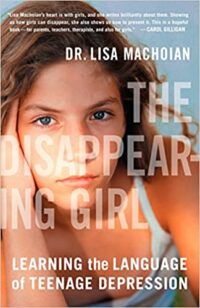
The Disappearing Girl: Learning the Language of Teenage Depression by Lisa Machoian
Depression in teenage girls can manifest very specifically. It can be difficult to differentiate between typical angst and a mental health issue. Silence can be a cry for inclusion. This books tackles these issues using personal stories, and while they can be hard to read, they unlock problem-solving techniques and language that can be easily applied in the real world.
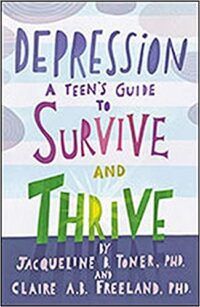
Depression: A Teen’s Guide to Survive and Thrive by Jacqueline B. Toner and Claire A. B. Freeland
This is a book for teens, but includes many prompts and exercises that give parents and caregivers language that can help when they’re talking through an difficult moment. This book is praised for accessible language and relatability for younger teens, which is great, because poor mental health starts so much earlier than society is set up to handle.
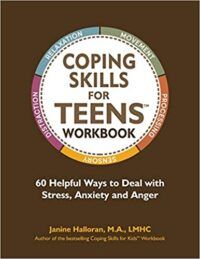
Coping Skills for Teens Workbook: 60 Helpful Ways to Deal with Stress, Anxiety and Anger by Janine Halloran
An actual, get-out-your-pen workbook! Including very specific actionable steps! Divided by coping style! I really like this as a followup to understanding a depression diagnosis, but also for the general chaos that is navigating the teen years. Everyone could use a few solid coping skills to get through life.
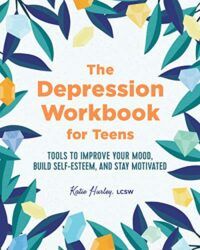
The Depression Workbook for Teens: Tools to Improve Your Mood, Build Self-Esteem, and Stay Motivated by Katie Hurley
This is another resource that helps both teens and parents with that important distinction between being sad and having a depression diagnosis. This book is full of quizzes, journaling prompts, and discussion starters that can be used by teens and the ones who love them.
None of these adolescent depression books for parents are going to take away the incredible stress of supporting a teen dealing with mental health issues. Hopefully, however, one of these adolescent depression books for parents will give you a scrap of comfort, a turn of phrase, or a piece of the puzzle that will allow you show up and support the young person you love.
Looking for more great mental health books? Read these mental health memoirs!

إرسال تعليق
0 تعليقات